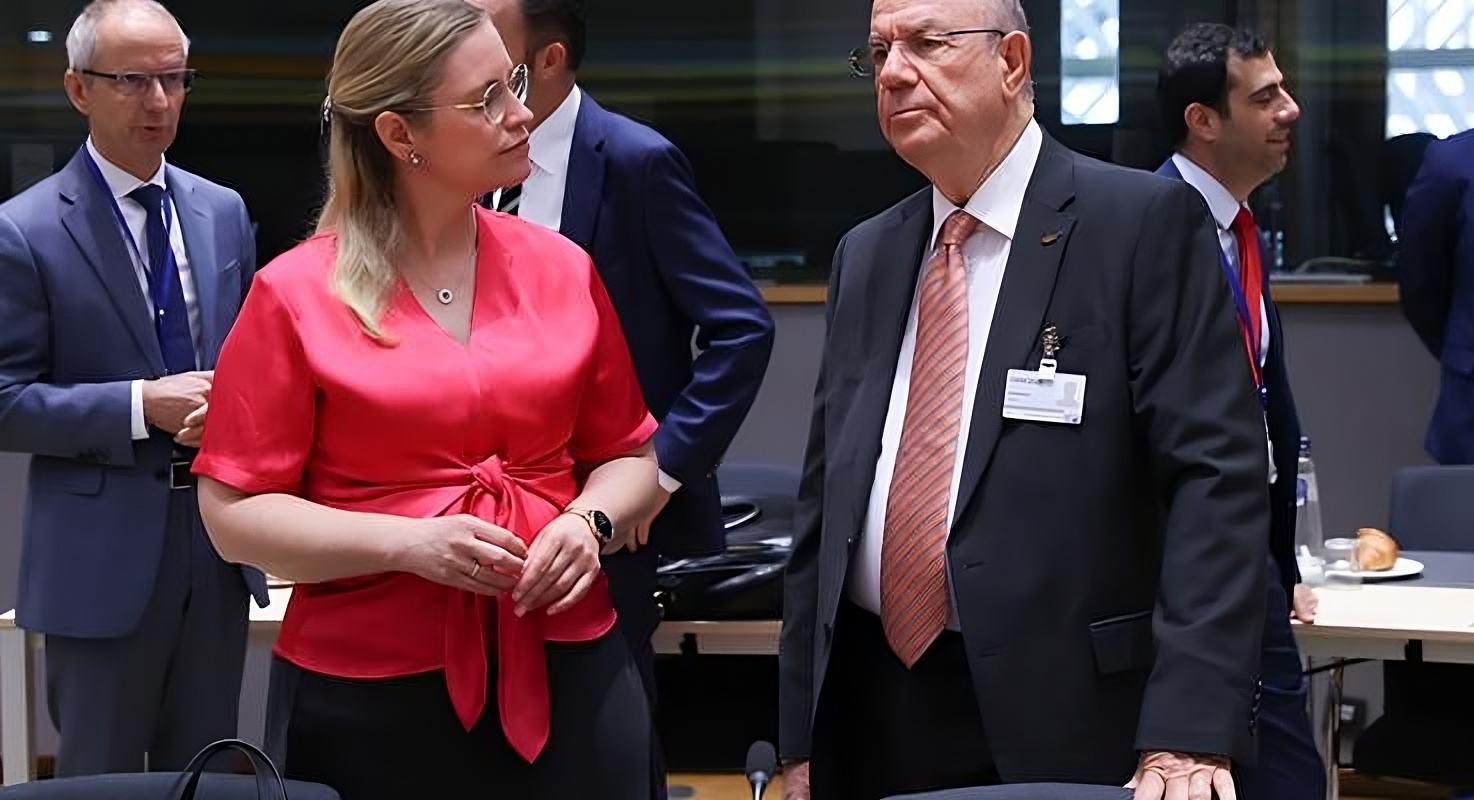Finance Minister Makis Keravnos on Friday called for urgent action to boost European competitiveness and reinforce the EU’s common defence as he arrived at the Economic and Financial Affairs Council (Ecofin) held in Luxembourg.
Keravnos said the European Union is facing “a global climate of political and economic upheavals” which “constantly generates threats and risks”.
Moreover, he underlined the need for the EU to strengthen the single market and take decisions that will enhance its competitiveness, making use of the advantages of the common currency.
“The euro, which today is the second strongest currency in the world, inspires trust and security among citizens” he said.
The Cypriot minister also said that there is a need to reinforce the EU’s defence capabilities, stating that “security must be guaranteed for all member states, whether located on the northern, eastern, or southern borders of the union”.
At the same time, European governments agreed to increase the annual lending ceiling of the European Investment Bank to €100 billion this year, alongside a sharp rise in its defence-related funding.
Citing sources briefed on the matter, Reuters reported that the decision was approved at an EIB board meeting in Luxembourg, ahead of a formal endorsement expected later on Friday by EU finance ministers.
The new limit is over €10 billion higher than the bank’s lending last year and exceeds by €5 billion the target set earlier this year by EIB President Nadia Calvino.
The move will enable the bank to more than treble its support for defence-linked projects, with funding rising to €3.5 billion from €1 billion last year.
While the EIB cannot finance weapons or ammunition directly, it can support infrastructure and dual-use technologies such as GPS systems or military base construction.
Among such projects is a new base in Lithuania, close to the Belarus border, where German troops are to be stationed permanently for the first time since the Second World War.
The funding boost comes amid growing European defence concerns and precedes a NATO summit in the Hague, where members face calls to increase their defence commitments.
In parallel, the EIB is expected to unveil a €70 billion programme called Tech EU, aimed at backing European technology development in fields like artificial intelligence, robotics, supercomputing, and renewables over the next three years.
Officials said the programme will combine equity, loans, and guarantees and aims to attract a further €250 billion in private investments.
Meanwhile, eurozone finance ministers on Thursday recommended that Bulgaria adopt the euro on January 1, 2026, marking its entry as the 21st member of the currency union.
Paschal Donohoe, who chairs Eurogroup meetings, stated that “the Eurogroup agreed today that Bulgaria fulfils all the necessary conditions to adopt the euro”.
The formal adoption will be confirmed by all EU finance ministers on June 21 and by EU leaders on June 26.
The exchange rate for converting the Bulgarian lev into euros will be set in early July.
Bulgaria, which joined the EU in 2007, has long sought euro accession, though public enthusiasm has waned, with half of the population now sceptical about the changeover, according to a recent Eurobarometer poll.






Click here to change your cookie preferences